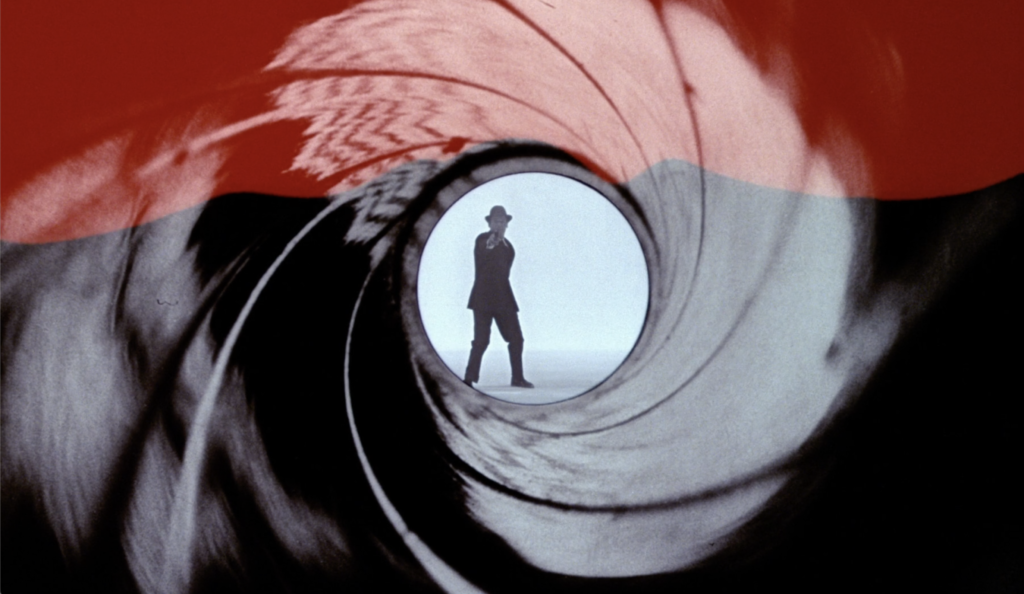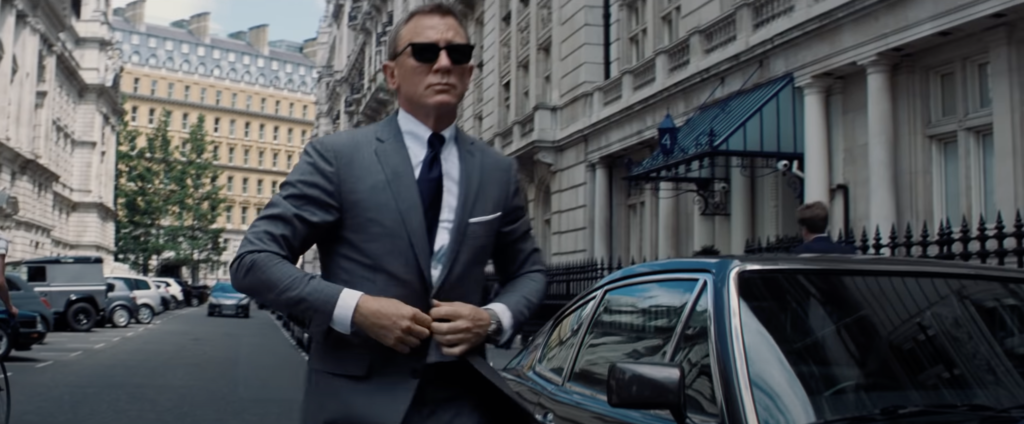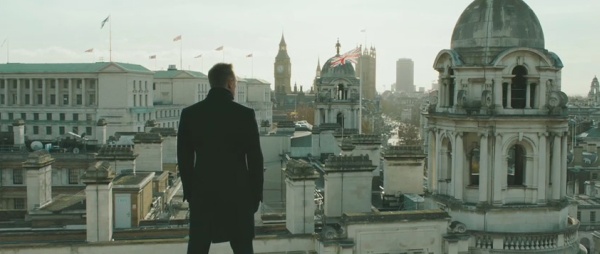
We recently heard that the entire Bond series is headed to Amazon Prime (at least in some territories), which is a great excuse to finally dust off an exercise that had been nagging at me since No Time to Die: re-ranking the series.
Continue reading
We recently heard that the entire Bond series is headed to Amazon Prime (at least in some territories), which is a great excuse to finally dust off an exercise that had been nagging at me since No Time to Die: re-ranking the series.
Continue reading
No Time to Die (Cary Joji Fukunaga, 2021)
(This review has very big spoilers for No Time to Die.)
No Time to Die is the 25th in the “official” Bond series started with Dr No in 1962; it is also the final in the Daniel Craig sequence that started in 2004 with Casino Royale. Because Casino Royale explicitly showed us Bond’s first mission, the Craig films established a distinct timeline from the rest of the series, which otherwise always had a loose, ambivalent approach to continuity. (Before this, it was kinda-sorta the same character and universe from film-to-film, even though that involved a stretchy approach to time and some blatant contradictions.) No Time to Die explicitly closes out this separate Craigverse; but it is in dialogue with the entirety of the series. While the film finishes with the customary “James Bond Will Return” subtitle, it would serve as an excellent capper to the venerable franchise. This is, in many senses at once, the ultimate Bond film.
Continue readingSkyfall (Sam Mendes, 2012)

Sam Mendes’ Skyfall is an unusual Bond outing. It follows closely on from its predecessors Casino Royale and Quantum of Solace, continuing their rebooted take on James Bond. Yet at the same time it reaches back to before the reboot, reinstating many elements of the older series. And even as it attempts to knit together the old and new Bond, in key ways it is unlike any of the previous entries.
I’ve written about my misgivings about a CG Tintin before, but my fandom keeps overtaking my rational reservations. The thought of Steven Spielberg and Peter Jackson collaborating on this material, working from a script by Steven Moffat (writer of some seriously good TV) and Edgar Wright, is pretty exciting. And now we have this pair of handsome posters. If only the last movie that had me this excited at poster stage wasn’t Indiana Jones and the Kingdom of the Crystal Skull.
Noted film composer John Barry, best known for his work on the James Bond series, has died at age 77.
I’m not qualified to write a really full analysis of his non-Bond work. Jaime Weinman has a nice little appreciation here.
Because of his association with the Bond series, Barry is sometimes assumed to have written the James Bond theme. That was the work of Monty Norman, although its authorship has literally been the subject of litigation: a defamation case a few years back was fought around the suggestion that Barry (who arranged the composition and whose orchestra played it) deserved more credit for the theme than Norman. While it seems clear that the basic melody was Norman’s work, there is also no doubt that even if Barry contributed no more than the arrangement, that was a mighty contribution. That work certainly crystallised the Bond sound.
The sound John Barry brought to those early Bonds combined a strident, almost lurid quality (most evident in the title themes), with a sweeping sense of epic adventure. The latter quality is very evident in Barry’s “007” theme, which he wrote for From Russia With Love and which became effectively the alternate Bond theme (no doubt preferred by Barry since he was 100% responsible for it).
Quantum of Solace (Marc Forster, 2008)
The new Bond film, Quantum of Solace, is a strange beast indeed. It aggressively imitates the rival Jason Bourne spy franchise; and yet despite that derivativeness, it somehow manages to impart a sense of renewal and vigour to the Bond series. In that sense it continues the work started by Casino Royale admirably. And while it doesn’t always feel like a Bond film, it does feels like those at the helm are actually concentrating – something that was missing in plenty of more identifiably “Bondian” entries in the franchise.
It starts mid-chase, in the immediate aftermath of Casino Royale, thus reviving the idea of film-to-film plotting that had been used (albeit more loosely) in the sixties Bond films. Bond is still smarting from the death of Vesper Lynd, and he’s following the leads she left him to try to find the organisation that was backing the previous film’s villain, Le Chiffre. Quantum thus gives a sense both of the film that should have followed the death of Bond’s wife in On Her Majesty’s Secret Service, and also of what the previous “renegade Bond out for revenge” film Licence to Kill should have been. It also very strongly echoes The Bourne Supremacy, right down to the icy Russian epilogue.
Here’s the new trailer for Quantum of Solace (aka the Bond movie with the title that makes everyone snicker but which has actually kind of grown on me).
I’ve said way to much about Bond over the years for it to be worth any detailed comment, but it is kind of cool. I love that finally we have some linkage between the films, in a way we haven’t had since the sixties. This looks like it could be the Bond revenge story that should have, but didn’t, follow the best Bond movie of all, On Her Majesty’s Secret Service.
Note: the following article includes detailed spoilers for several Bond films and books, including the ending for both Casino Royale and On Her Majesty’s Secret Service. You have been warned.
The exciting thing about the newest Bond film, Casino Royale, is that it starts the cinematic James Bond series afresh. There has been much commentary on what this means for the Bond series going forward, centring on speculation as to whether this change in tone will carry into the next film. What I haven’t seen a great deal of discussion about, however, is what the events of Casino Royale, and the associated rebooting of the series, means for our understanding of who Bond is.
Casino Royale (Martin Campbell, 2006)
The crucial line in the opening credits: “Based on the novel by Ian Fleming.”
Ian Fleming’s credit on the film Bond series has for years been simply “Ian Fleming’s James Bond in…” and then the title of the movie. There hasn’t been a Bond film that stayed anything close to one of his novels since 1969’s On Her Majesty’s Secret Service: in the seventies, the producers generally threw out Fleming’s plots, while by the 1980s the Bond films were taking the titles and a few incidents from his short stories but little more. All this time Casino Royale, the first Bond novel, remained unfilmed. The film rights were owned by different people to the rest of the series: they provided legal cover for a Bond spoof under the title in 1967, but yielded little else. In retrospect, given the level of farce the Bond series was reduced to through this period, the legal circumstances preventing an adaptation virtually amounted to protective custody. Now, though, corporate mergers and legal horse-trading has allowed its use as part of the “official” Bond series. And after the series hit a recent low with Die Another Day, the timing could not be better for a reintroduction of Fleming’s spirit to the series.
As a follow-up to my post about Casino Royale early in February, some of Martin Campbell’s views on the new film have featured in a story over at CommanderBond.net (apparently pretty much lifted verbatim from The New York Daily News).
According to Campbell, the new film will take the storyline from Fleming’s original novel – his first – and tweak it for a 2006 audience. “There are things that will have to be changed from the original novel. The Cold War elements will have to be reconfigured, for example, but Casino Royale will be a grittier, tougher and more realistic Bond movie. We’ll be getting away from the huge visual effects kind of films.”
Perhaps the biggest revelation from Campbell is that Casino Royale will take James Bond back to his early 007 days (a similar idea was floated during pre-production on The Living Daylights). However, CBn can confirm that the movie will not be a period film.
“In the new film, Bond is essentially starting out in his career, and has just recently become part of the double-0 section,” Campbell said. “The idea is to put a bit of the dash back in Bond. By the end of the movie, the character will have been forged into the wiser, harder Bond we know.”
The interview touches on Bond’s romance with Vesper Lynd from Fleming’s novel, one of the most unique of the series. “The door is open for Bond, emotionally. He’s in love with Vesper and he sees there’s another side to all of this, that life might be far more pleasurable, more gratifying, than being a secret agent. And ultimately that door is slammed in his face, which makes him the tempered steel kind of guy that we know. I’m looking forward to humanising Bond a bit.”